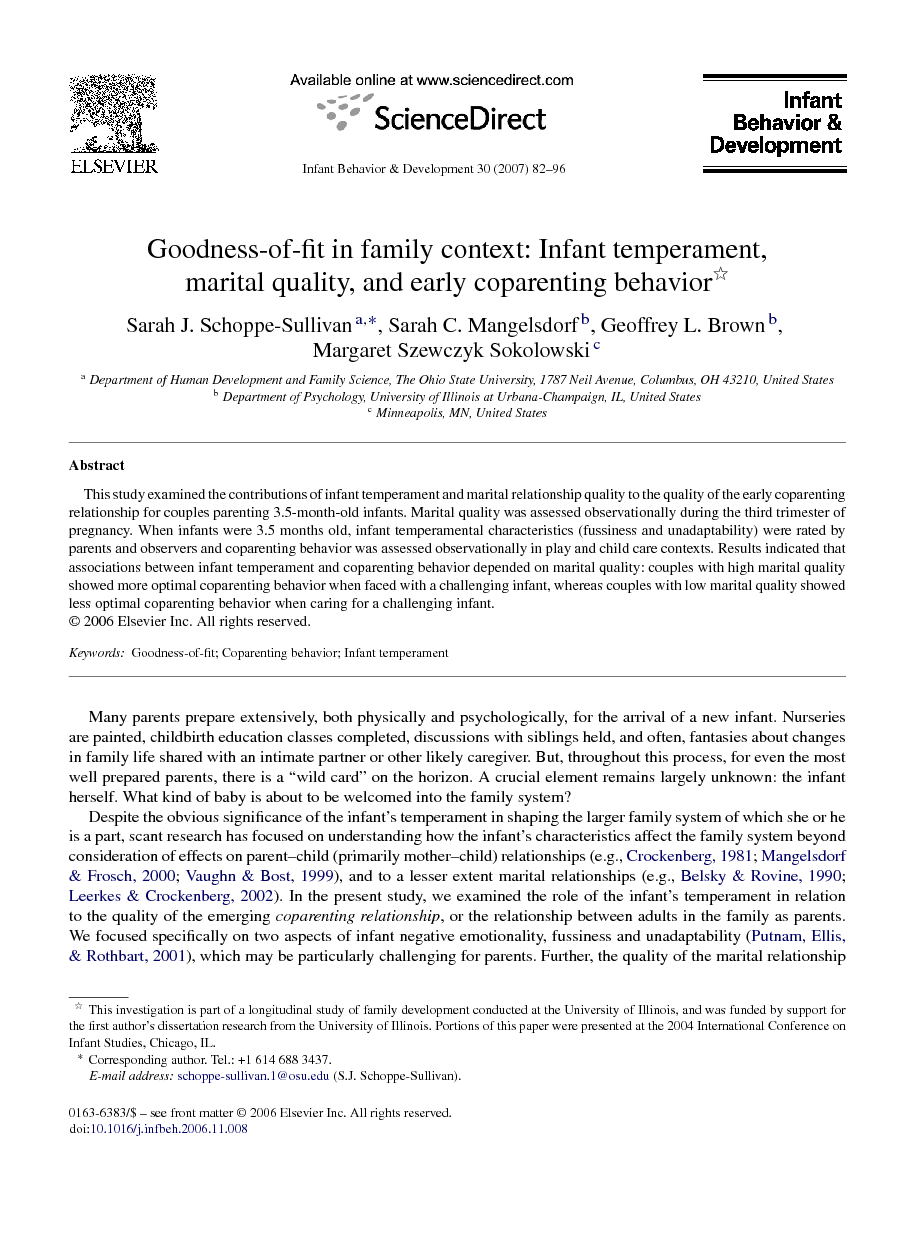This study examined the contributions of infant temperament and marital relationship quality to the quality of the early coparenting relationship for couples parenting 3.5-month-old infants. Marital quality was assessed observationally during the third trimester of pregnancy. When infants were 3.5 months old, infant temperamental characteristics (fussiness and unadaptability) were rated by parents and observers and coparenting behavior was assessed observationally in play and child care contexts. Results indicated that associations between infant temperament and coparenting behavior depended on marital quality: couples with high marital quality showed more optimal coparenting behavior when faced with a challenging infant, whereas couples with low marital quality showed less optimal coparenting behavior when caring for a challenging infant.
Many parents prepare extensively, both physically and psychologically, for the arrival of a new infant. Nurseries are painted, childbirth education classes completed, discussions with siblings held, and often, fantasies about changes in family life shared with an intimate partner or other likely caregiver. But, throughout this process, for even the most well prepared parents, there is a “wild card” on the horizon. A crucial element remains largely unknown: the infant herself. What kind of baby is about to be welcomed into the family system?
Despite the obvious significance of the infant's temperament in shaping the larger family system of which she or he is a part, scant research has focused on understanding how the infant's characteristics affect the family system beyond consideration of effects on parent–child (primarily mother–child) relationships (e.g., Crockenberg, 1981; Mangelsdorf & Frosch, 2000; Vaughn & Bost, 1999), and to a lesser extent marital relationships (e.g., Belsky & Rovine, 1990; Leerkes & Crockenberg, 2002). In the present study, we examined the role of the infant's temperament in relation to the quality of the emerging coparenting relationship, or the relationship between adults in the family as parents. We focused specifically on two aspects of infant negative emotionality, fussiness and unadaptability ( Putnam, Ellis, & Rothbart, 2001), which may be particularly challenging for parents. Further, the quality of the marital relationship was considered as a potential moderator of the associations between infant temperament and emerging coparenting behavior.


